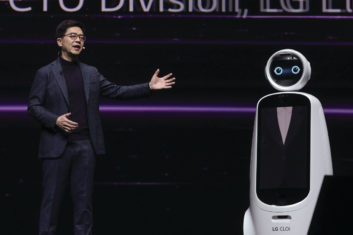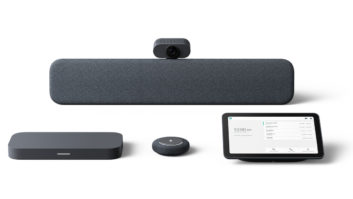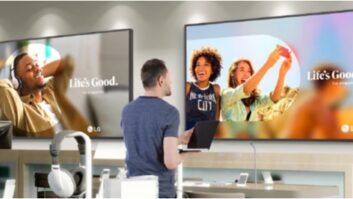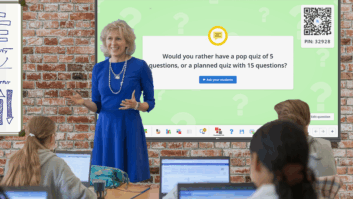
Artificial intelligence must think and learn, rather than just pour information, in order for humans to fully realise the potential of the technology, Dr I.P. Park, LG Electronics president/chief technology officer, asserted in his CES keynote on Monday evening at the Park MGM.
Park, whose address marked the first time an LG exec has keynoted at CES, outlined how the company will “shape a new future of [artificial intelligence] AI” with devices that will “evolve, connect and open” to provide “an opportunity of our lifetime to open the next chapter in … human progress.”
LG’s ThinQ is “a new language for articulating our user-centric framework for thinking and using AI in all our future innovations,” Park explained. The company’s OLED TVs features its ALPHA 9 AI chip for TV, which automatically optimises the display and sound settings to what you’re watching, he said.
LG has also developed what Park described as the first AI chip for home appliances, which combines voice recognition, visual recognition, WiFi connectivity and sensor interfaces in a single piece that “allow a whole range of devices to learn and evolve.”
LG is developing technologies supporting autonomous vehicles, prompting Park to ask: “What are we going to do with all that time saved from not driving?” LG’s answer? Mobile space. A prototype autonomous vehicle in Seoul, South Korea, illustrates the concept, where passengers change the space of a vehicle into a private cinema, mobile office or a place to shop. It features smart seats that will automatically adjust itself to the passenger’s sitting preferences, and can guide the vehicle around traffic jams, among other things.
Park said LG is looking for collaborators, and is adding its webOS open access to the company’s own AI ThinQ platform for developers all around the world.
One of Park’s key announcements was that LG is working closely with Qualcomm to ensure all the company’s devices and solutions are 5G ready. He also outlined how robotics will soon be used as “a service and as a system to further expand what we’re doing at home and on the road to better manage our lives and the space we live in.”







